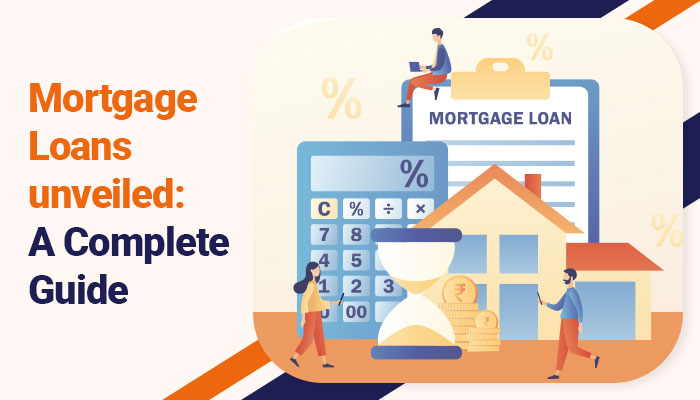Navigating the world of home financing can be complex, especially when it comes to understanding the specific terms like “mortgage loan society mortgage.” This type of mortgage offers unique advantages for homebuyers, particularly those looking for alternatives to traditional bank loans. In this comprehensive guide, we will delve into what mortgage loan society mortgages are, how they work, and why they might be the right choice for your home purchasing needs in the United States.
What is a Mortgage Loan Society? A mortgage loan society, often a non-profit entity, provides alternative financing options for homebuyers. These societies are typically membership-based, offering loans primarily to their members. They operate with the goal of helping individuals achieve homeownership in a way that supports community development and financial inclusion. This section will explore the history of mortgage loan societies in the U.S., their mission, and how they differ from traditional banks.
Understanding the Loan Process
- Eligibility and Membership: Detailed information on how to become a member of a mortgage loan society and what eligibility criteria need to be met.
- Application Process: Step-by-step guidance through the loan application process specific to mortgage loan societies, including necessary documentation and what to expect during each stage.
- Closing the Loan: Explanation of the closing process, including common hurdles and how to overcome them with the help of a loan society.
Types of Mortgages Offered by Loan Societies
- Fixed-Rate Mortgages: Stability with fixed interest rates for the life of the loan.
- Adjustable-Rate Mortgages (ARMs): Lower initial rates with potential increases or decreases based on market conditions.
- Specialized Loans: Programs for first-time buyers, veterans, or lower-income families.
Comparison with Other Financing Options This section will compare mortgage loan society mortgages with other types of home financing, such as traditional bank loans, FHA loans, and others. It will highlight the pros and cons of each to help potential homebuyers make an informed decision.
Customer Experiences and Testimonials Incorporate stories and testimonials from individuals who have successfully secured mortgages through a loan society. This real-world evidence can help illustrate the benefits and challenges faced by others, providing readers with relatable insights.
Future of Mortgage Loan Societies Discussion on the potential future trends in mortgage lending by loan societies, including technological advancements, regulatory changes, and predictions on how these might influence the availability and terms of society mortgages.
Conclusion Summarize the key points discussed in the article and reaffirm the benefits of considering a mortgage loan society for home financing. Encourage readers to explore this option further if they seek a more personalized, community-oriented approach to buying a home.

What is a Mortgage Loan Society?
A Mortgage Loan Society is a specialized financial institution that offers unique advantages for individuals looking to purchase a home. Unlike traditional banks, these societies operate primarily on a membership basis, focusing on community aid and support to their members rather than maximizing profits. Originating from the cooperative movement, these societies were established to make property ownership accessible and affordable for more people, especially those who might not qualify for standard bank loans.
Mortgage Loan Societies are generally characterized by their commitment to financial inclusion. They provide more than just loans; they offer a support system for their members through educational resources about homeownership and personal finance management. These institutions are rooted in local communities, which means they have a deep understanding of the specific needs and challenges faced by their members in the housing market.
In the United States, the concept of a Mortgage Loan Society might also tie in with credit unions and community banks, which share similar values of community support and member-focused services. These societies tend to hold strong ethical values, often reinvesting profits back into the community to improve services and provide better rates and terms for their members.
Benefits of a Mortgage Loan Society Mortgage
Lower Interest Rates
One of the most significant benefits of securing a mortgage through a loan society is the potential for lower interest rates. Since these organizations are not profit-driven, they can offer more competitive rates than traditional banking institutions. Lower rates mean more affordable monthly payments, making homeownership accessible to a broader range of individuals, particularly beneficial for first-time buyers or those with limited budgets.
Flexible Loan Terms
Mortgage Loan Societies often offer more flexible loan terms compared to their commercial counterparts. This flexibility can include longer repayment periods, lower down payments, and more forgiving criteria for loan approval. Such flexibility is especially crucial for buyers who might not have a perfect credit history or those who are self-employed and might struggle to meet the strict income documentation requirements of traditional lenders.
Community Focus
The community-oriented nature of these societies means that they often provide a level of personalized service that larger banks cannot match. Loan officers are more likely to work with applicants to understand their unique financial situations and offer solutions tailored to their specific needs. Additionally, these societies might offer community-building programs, homeowner education, and events designed to enhance the financial literacy of their members.
Support During Financial Hardships
Another critical advantage is the supportive approach these societies take during financial hardships. Recognizing that anyone can face tough times, Mortgage Loan Societies are often more prepared to work with borrowers to rearrange payment schedules and prevent foreclosure. This aspect is particularly important in economic downturns, where flexible repayment options can make the difference between keeping and losing a home.

Eligibility and Membership
Before diving into the specifics of obtaining a mortgage through a loan society, it is crucial to understand the eligibility criteria and membership requirements. Most mortgage loan societies require potential borrowers to become members before they can apply for a mortgage. Membership is typically open to individuals who live, work, or have a certain affiliation with the community served by the society. This could include geographic boundaries or specific employment sectors, like government employees, teachers, or union members.
Once membership is confirmed, the eligibility for a mortgage typically involves assessing the applicant’s financial stability and creditworthiness. Unlike traditional banks, loan societies often have more lenient criteria, considering the whole financial situation of applicants rather than just focusing on credit scores. They might look at alternative data like rent payment histories or utility bill payments, making these loans more accessible to individuals with less than perfect credit histories.
Application Process
The application process for a mortgage with a loan society is designed to be transparent and supportive, aligning with the institution’s community-focused ethos. The process usually begins with a preliminary consultation, where potential borrowers can discuss their needs and understand the various mortgage products available. During this consultation, loan officers provide detailed explanations of the terms and conditions of different mortgage options, ensuring applicants make informed decisions.
Following the initial consultation, applicants are required to submit a formal application, accompanied by necessary documentation such as proof of income, employment verification, and current financial obligations. This stage might also involve financial counseling sessions, particularly for first-time homebuyers, to ensure they fully understand the responsibilities associated with obtaining and repaying a mortgage.
Loan Approval and Closing
Once the application is submitted, the mortgage loan society conducts a thorough review, which includes the verification of all documents and a comprehensive financial assessment. Given their community-centric approach, loan societies often expedite this process to provide timely responses to their members.
Upon approval, the closing process begins. This final stage involves several important steps, including the signing of legal documents, the finalization of loan terms, and the disbursement of funds. Loan societies often provide guidance during this stage, helping members navigate the complexities of home buying. Closing costs, often lower than those charged by traditional lenders, are clearly outlined, with no hidden fees, reflecting the transparent operations of these societies.
Post-Closing Support
Unlike many traditional financing options, the relationship between the borrower and the loan society does not end at the closing. Most societies offer ongoing support to their members, including post-purchase counseling and resources for effective financial management and home maintenance. This ongoing engagement ensures that members not only acquire their homes but also maintain them sustainably, reinforcing the society’s commitment to long-term member success and community stability.


